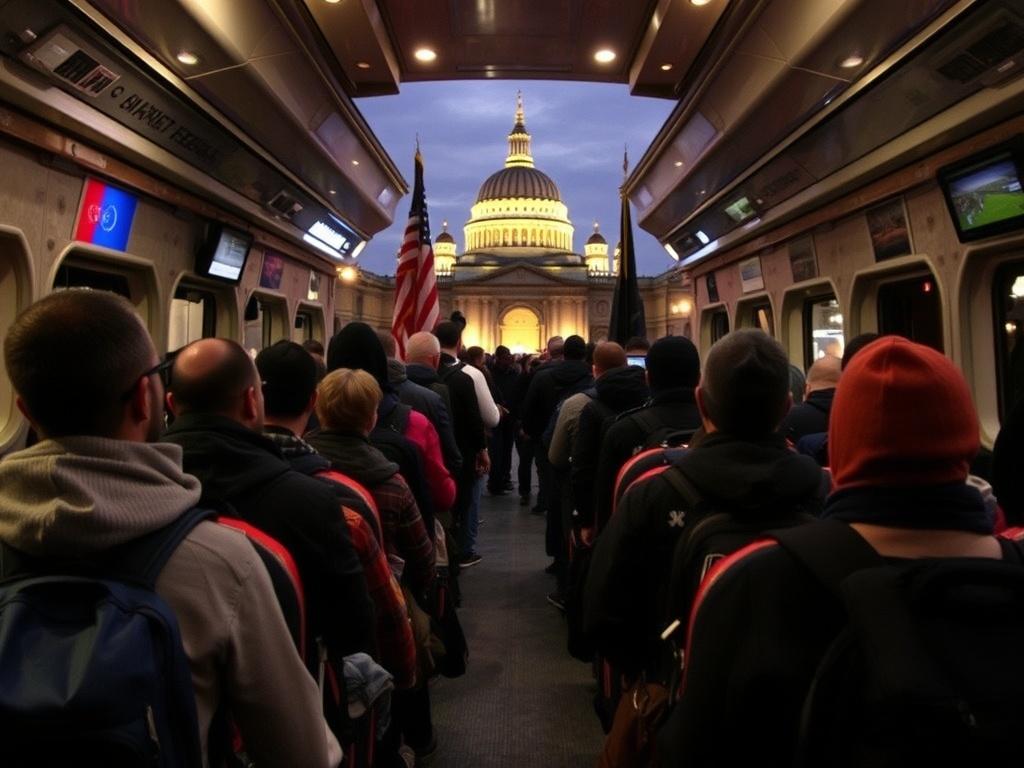
How to Travel During Political Unrest: A Practical Guide for Safe and Smart Adventures
Traveling during times of political unrest can feel daunting, even dangerous, but it doesn’t have to halt your plans entirely. Whether you’re a seasoned globetrotter or planning your first international trip, understanding how to travel during political unrest is essential for ensuring your safety and peace of mind. Political unrest can come in many forms — from peaceful protests and demonstrations to violent conflicts and government crackdowns. Navigating this landscape requires preparation, awareness, and flexibility. In this article, we’ll explore practical strategies and helpful tips on how to travel during political unrest and come away with a rewarding experience despite the challenges.
Understanding Political Unrest and Its Impact on Travel
Political unrest refers to periods of instability within a country due to social, economic, or political grievances. It might involve protests, strikes, riots, or clashes between opposing groups. This unrest can disrupt daily life, including transportation, communication, and public services. For travelers, this means unpredictability: roads might close, flights may be canceled, and normal tourist activities could be restricted or unsafe.
When planning travel during unsettled conditions, the first step is to gain a clear understanding of what’s happening. This includes recognizing the nature of political unrest and its possible trajectory. Is the unrest localized to one city or widespread across the country? Are protests peaceful or violent? Understanding these nuances allows travelers to make informed decisions about where and when it’s safe to travel.
Before You Go: Essential Preparations
Preparation is your strongest ally when learning how to travel during political unrest. Here are some crucial steps to take before embarking on your journey.
Research Current Events and Travel Advisories
Start by checking up-to-date information from reliable sources such as government travel advisories (e.g., U.S. Department of State, UK Foreign Office), international news outlets, and local media. These sources often provide assessments of safety levels, areas to avoid, and advice on emergency contact numbers.
Create a list of trustworthy news sources from the destination’s region and schedule regular check-ins on the status before and during your travel. Remember that political unrest can develop quickly, so continuous monitoring is key.
Register with Your Embassy
Most countries offer services for travelers to register their presence abroad. This registration allows your embassy to contact you in case of emergency and offer assistance if the situation worsens. It also helps your government keep track of its citizens during crises.
Plan Flexible Itineraries
When traveling during political unrest, flexibility is crucial. Avoid booking non-refundable flights and accommodations. Opt for travel insurance that specifically covers disruptions due to political instability. Plan your itinerary so that you can leave a location quickly if conditions deteriorate.
Have a Communication Plan
In situations of unrest, communication infrastructure may be unreliable. Arrange multiple ways to stay in touch — international SIM cards, offline maps, satellite communication apps — and keep family or friends informed about your whereabouts regularly.
Safety Tips While Traveling Amidst Political Unrest
Traveling in unsettled times means you have to pay extra attention to your personal safety. Here are strategic safety tips to keep in mind.
Stay Away from Demonstrations and Large Gatherings
It might sound obvious, but it’s worth stressing: avoid protests, rallies, and political events altogether. Even peaceful protests can unexpectedly turn violent or be targeted by security forces. Stay updated on when and where demonstrations are expected and steer clear.
Use Trusted Transportation and Avoid Night Travel
If public transportation is affected, rely on reputable taxi services or arranged transportation through your accommodation. Avoid traveling after dark, as security can diminish and dangers increase. If you must travel, make sure someone knows your route and estimated arrival time.
Keep Valuables Secure and Travel Light
Minimize what you carry and keep valuables in secure, hidden pockets or money belts. Crowded areas during unrest are hotspots for pickpocketing or theft, so remain vigilant.
Blend In and Stay Low-Profile
Draw less attention to yourself by dressing modestly and avoiding flashy jewelry. Refrain from discussing politics or the ongoing unrest with locals unless you truly know and trust them. Maintaining a low profile reduces the chance of conflict or unwanted scrutiny.
Navigating Accommodation and Local Contacts
Where you stay and whom you interact with locally can greatly affect your experience and safety.
Choose Safe Neighborhoods
Research and select accommodations in safer, quieter neighborhoods, usually away from political hotspots. Many cities have safer districts that are well-patrolled and more stable, even during unrest.
Communicate with Locals Wisely
Local insight is invaluable, but political tensions might create distrust or sensitivity. Engage with your accommodation hosts or trusted local contacts to gain practical advice on areas to avoid, local customs, and emergency protocols. Establishing a few trusted local contacts can be a lifesaver.
Emergency Preparedness: What to Do If Things Go Wrong
No one wants to imagine emergencies, but traveling during political unrest means you must be ready to act quickly.
Know Emergency Exits and Shelters
Upon arrival, identify the nearest hospital, police station, embassy, and emergency shelter. Having this knowledge beforehand helps you respond calmly and effectively.
Have an Emergency Kit
Pack a small emergency kit including first aid supplies, copies of important documents (passport, visas, insurance), cash in local and foreign currency, bottled water, and non-perishable snacks. Your emergency kit should be easy to carry and accessible at all times.
Emergency Contacts List
Prepare a list of essential contacts including:
- Your country’s embassy or consulate
- Local emergency services (police, ambulance, fire)
- Your travel insurance provider
- Trusted local contacts
Store this list both physically and digitally.
How to Handle Transportation Disruptions During Political Unrest
Political unrest often leads to roadblocks, strikes, and flight cancellations, which can disrupt travel plans significantly.
Alternative Transport Options
Investigate alternative transportation methods such as renting a car, using ride-sharing services, or even cycling when roads aren’t blocked and conditions are safe. Always consult locals or trusted sources before venturing out on your own.
Stay Close to Transportation Hubs
If your itinerary depends heavily on airports or bus stations, stay near these hubs to allow quick access if you need to depart suddenly. It’s advisable to check in with transport providers daily for schedule updates.
Avoid Major Highways and Protest-Prone Areas
Use maps and update yourself on blocked or dangerous routes. Staying on secondary or less commonly traveled roads can sometimes provide safer transit options.
The Role of Travel Insurance and Documentation
Travel insurance becomes particularly important when dealing with political unrest. Not all policies cover cancellations or evacuations triggered by unrest, so select your insurance carefully.
Types of Coverages to Look For
| Coverage Type | Why It’s Important |
|---|---|
| Trip Cancellation / Interruption | Protects your money if you cannot start or continue your trip due to unrest |
| Medical Evacuation | Covers emergency transportation for medical reasons to safe locations |
| Political Evacuation | Supports evacuation if the situation becomes dangerous |
| Baggage Loss/Theft | Important given higher risk of theft during unrest |
Ensure all your travel documents — passports, visas, health documents — are up to date and stored safely both physically and digitally.
Keeping Mental and Emotional Balance
Traveling in unstable environments can be stressful and emotionally taxing. Maintaining your mental well-being is as important as your physical safety.
Stay Connected to Loved Ones
Regular contact with friends and family provides reassurance and emotional support. Share your experiences and feelings openly.
Practice Mindfulness and Stress-Relief Techniques
Simple mindfulness exercises, deep breathing, and maintaining a routine can help reduce anxiety. Don’t hesitate to take a break from news updates if you feel overwhelmed.
Maintain Realistic Expectations
Accept that your trip might not go exactly as planned. Flexibility and patience will help you navigate challenges with resilience.
Examples of Countries with Political Unrest and How Travelers Adapted
To give you real-world context, here are some brief examples showing how travelers navigated political unrest in different regions.
- Thailand (2010 Protests): Tourists avoided the protest sites in Bangkok and chose the northern provinces for safer experiences.
- Venezuela (2017–2019 Crisis): Travelers relied heavily on embassy advisories and limited themselves to guided tours in stable areas.
- Hong Kong (2019 Demonstrations): Tourists used apps to track demonstrations in real-time and shifted plans to avoid affected areas.
These examples show that while political unrest poses challenges, careful planning and situational awareness enable travelers to continue exploring safely.
Conclusion
Traveling during political unrest might seem risky, but with the right preparation and mindset, it is possible to navigate such situations safely and even enrich your travel experience. The key lies in thorough research, maintaining situational awareness, flexible planning, and prioritizing your safety above all else. Avoid demonstrations, choose secure accommodations, keep emergency plans handy, and stay connected with local and international sources for updates. Remember that each situation is unique, so tailor your approach accordingly. By understanding how to travel during political unrest, you empower yourself to handle challenges calmly while embracing the adventure and cultural insights that travel can offer, even in uncertain times. Safe travels!




